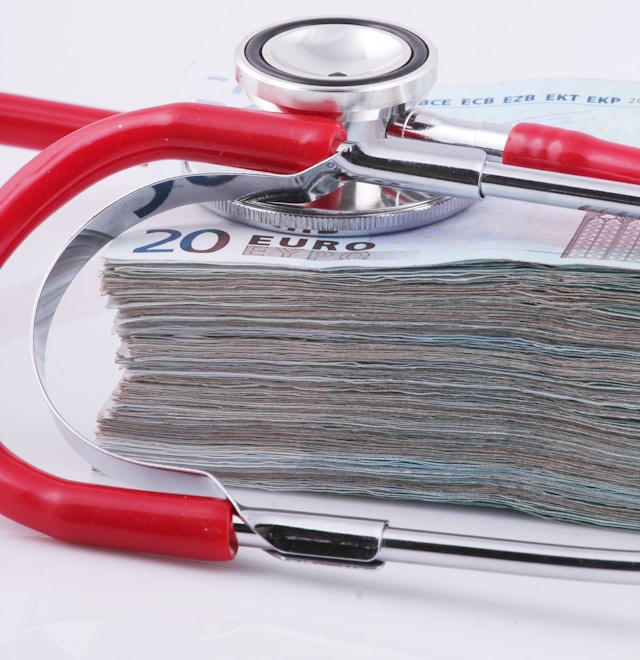What Medical Bills Are Covered After a Crash — And Who Pays?

Getting into a car accident is stressful enough, but the aftermath often brings even more confusion—especially when it comes to paying for medical treatment.
Whether you walked away with minor injuries or needed emergency surgery, the bills can add up quickly. So who’s responsible for covering those costs? And what medical expenses are actually covered after a crash?
The answers depend on several factors, including the severity of the injuries, who was at fault, and what type of insurance coverage is involved.
In this blog, we’ll break down what types of medical bills are typically covered after a car accident and who is financially responsible for them. Sigman Janssen’s Appleton car crash lawyers help crash victims take legal action.
Common Medical Expenses After a Car Accident
Car accident injuries can vary widely—from minor bruises and whiplash to serious trauma requiring long-term care. Here are some of the most common medical costs that result from a crash:
- Emergency room visits
- Ambulance transportation
- Hospital stays and surgeries
- Diagnostic tests (X-rays, CT scans, MRIs)
- Physical therapy and rehabilitation
- Chiropractic care
- Prescription medications
- Follow-up doctor visits
- Medical equipment (crutches, braces, etc.)
- Mental health counseling (e.g., PTSD treatment)
These costs can escalate quickly, especially if ongoing care is needed. Understanding who pays—and when—is critical for managing your recovery and avoiding financial strain.
Who Pays Your Medical Bills After an Accident?
The person (or insurer) responsible for covering your medical bills can vary based on the accident circumstances and your state’s insurance laws. Let’s look at the most common scenarios.
1. Your Own Auto Insurance (No-Fault or PIP States)
If you live in a no-fault state (like Florida, New York, or Michigan), your own auto insurance policy may cover your initial medical expenses—regardless of who caused the accident.
This coverage is typically called Personal Injury Protection (PIP) and can help pay for:
- Medical treatment
- Lost wages
- Funeral expenses (in fatal accidents)
However, PIP coverage has limits—usually between $10,000 and $20,000. Once that limit is reached, you may need to use your health insurance or pursue a claim against the at-fault driver for the remaining costs.
2. Health Insurance
After your auto insurance coverage (like PIP or MedPay) is exhausted—or if you live in an at-fault state—you may need to use your health insurance to cover remaining medical expenses.
Health insurance typically pays for:
- Emergency and follow-up care
- Surgeries and specialist visits
- Rehabilitation and medications
Keep in mind that you’ll likely still have to pay deductibles, co-pays, and out-of-pocket maximums. Additionally, your health insurer may file a subrogation claim to get reimbursed from any eventual settlement with the at-fault driver.
3. The At-Fault Driver’s Insurance
If someone else caused the accident, their liability insurance may eventually reimburse you for your medical expenses, lost wages, and pain and suffering. However, this process can take time—sometimes months or even years—especially if:
- The at-fault driver denies responsibility
- Their insurance company disputes the severity of your injuries
- You need to file a lawsuit
While you’re waiting for a settlement or verdict, you’ll often need to cover your own bills up front through PIP, MedPay, or health insurance.
4. MedPay (Medical Payments Coverage)
Some auto insurance policies include Medical Payments Coverage (MedPay). This optional add-on works similarly to PIP but is available in both no-fault and at-fault states. MedPay can help cover medical bills for you and your passengers, regardless of fault.
MedPay typically covers:
- ER visits
- Hospital bills
- Diagnostic testing
- Chiropractic and rehab services
Coverage limits are usually lower than PIP, but MedPay can be a helpful buffer before turning to health insurance or waiting on a third-party claim.
5. Uninsured or Underinsured Motorist Coverage (UM/UIM)
If you’re hit by a driver who has no insurance—or not enough—your own UM/UIM coverage may step in to pay for your medical expenses. This coverage is optional in some states and required in others.
UM/UIM coverage helps when:
- The at-fault driver is uninsured
- The at-fault driver’s policy limits are too low to cover your damages
- You’re the victim of a hit-and-run
It can cover medical costs, lost wages, and other damages, depending on your policy terms.
What Happens If You Delay Medical Treatment?
Delaying treatment after a car accident can harm both your health and your personal injury claim. Insurance companies often look for reasons to reduce or deny claims, and a gap in treatment may be used to argue that:
- You weren’t seriously injured
- Your injuries weren’t caused by the accident
- You contributed to the severity of your condition by not seeking care
To protect your rights and your well-being, seek medical attention immediately after a crash—even if you feel okay. Some injuries, like internal bleeding or whiplash, may not show symptoms right away.
Can a Lawyer Help With Medical Bills?
Yes. A personal injury lawyer can help you:
- Identify all available insurance coverage
- Negotiate with medical providers or insurance companies
- Send letters of protection to delay medical bills until a settlement is reached
- Maximize compensation from the at-fault driver’s insurance
An experienced attorney will also ensure you’re not stuck with bills that should be covered by insurance or included in your injury settlement.
Medical bills after a car accident can pile up quickly, but you may have more options than you think. Depending on where you live and the type of insurance involved, coverage may come from your auto policy, your health insurer, or the at-fault driver’s liability coverage.
Understanding who pays—and how—can make the difference between a stressful financial burden and a smooth recovery. If you’re unsure about your options or your rights, speak with a qualified car accident attorney as soon as possible. They can help you navigate the process, protect your interests, and pursue full compensation for your injuries.



